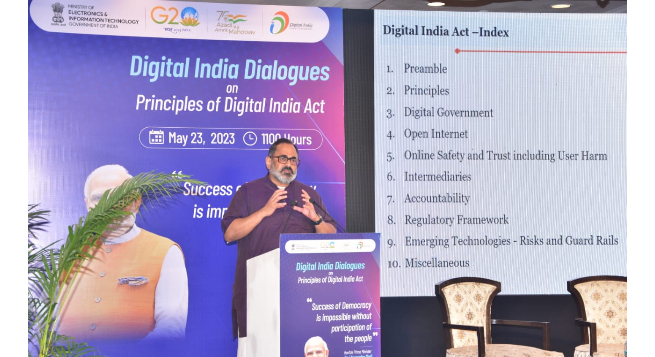India’s federal government yesterday announced that the upcoming Digital India Act (DIA) will strictly deal with misinformation and ‘high-risk AI’ to prevent user harm, with the first draft of the Bill expected in the first week of June.
During the second round of pre-drafting public consultations with various stakeholders, Rajeev Chandrasekhar, Union Minister of State for Electronics and IT, stated that in response to the growing threat of AI-related misinformation, the government will put in place necessary safeguards, and a portion of the DIA will address “high-risk and deep fake AI.”
“We will not regulate AI, but we will establish safeguards. There will be no separate legislation, but a section of the DIA will address threats associated with high-risk AI,” the minister stated in Digital India Dialogues event in Mumbai, according to an IANS report.
The DIA will facilitate startup innovation in the country. Prime Minister Narendra Modi is very clear that anything the government does should not cause difficulties for innovation in the startup space,” Chandrasekhar told the audience.
“We’ll be very sensitive to this.” We have no intention of making things difficult for startups. “DIA will serve as a catalyst for startup innovation,” the Minister added.
Concerning misinformation, he stated that the IT Rules place this responsibility (of determining misinformation) on platforms. “If the DIA needs to define misinformation, we will,” Chandrasekhar added.
The government met with policy experts and other stakeholders for the second round of consultations on the much-anticipated DIA, which is expected to be released in the next two-three months.
The Ministry of Electronics and Information Technology (Meity) held the first round of pre-drafting consultations with stakeholders on the DIA in March, with the goal of catalyzing India’s ambition to be among the first nations to shape future technologies.
As part of the Digital India Dialogues, the design, architecture, and goals of the Bill are being discussed with stakeholders at the pre-introduction stage for the first time.
The proposed Bill aims to assist India in becoming a trillion-dollar digital economy and a significant trusted player in global value chains for digital products, devices, platforms, and solutions.
The tech ecosystem in general, and the Internet in particular, have evolved significantly since the Information Technology Act (IT Act) was passed in 2000, and the new law must be adaptable and consistent with changing market trends, technological disruption, and the protection of “digital nagriks” from user harm, the Minister said.
 MIB to unveil M&E sector statistical handbook today at WAVES
MIB to unveil M&E sector statistical handbook today at WAVES  WAVES 2025: Media dialogue backs creativity, heritage & ethics in AI Era
WAVES 2025: Media dialogue backs creativity, heritage & ethics in AI Era 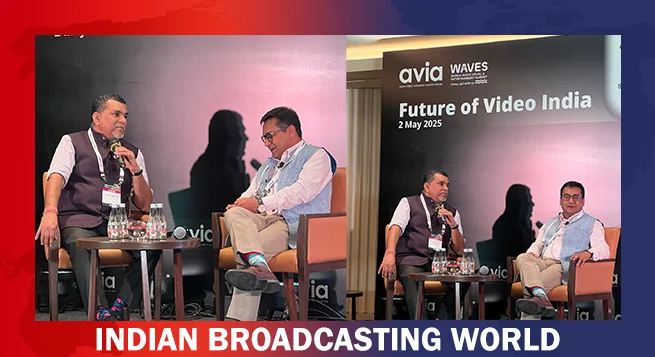 Pay TV leaders chart course for India’s linear TV in digital age
Pay TV leaders chart course for India’s linear TV in digital age 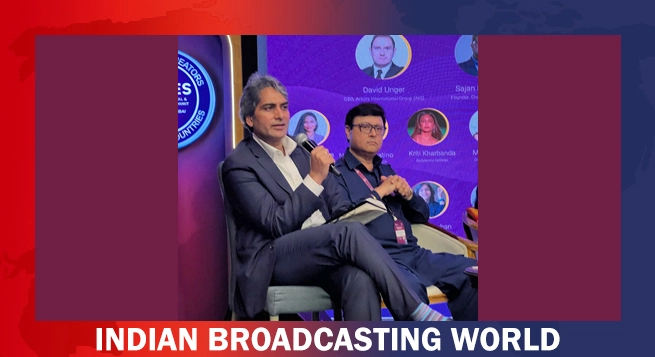 Sudhir Chaudhary announces new show for DD News, says “Good content still has a place” at WAVES 2025
Sudhir Chaudhary announces new show for DD News, says “Good content still has a place” at WAVES 2025 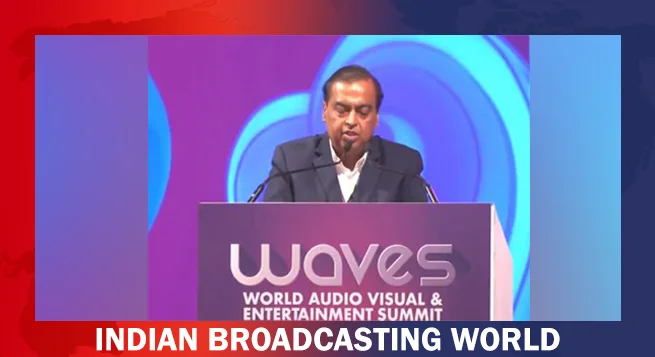 India can lead global entertainment revolution: Mukesh Ambani
India can lead global entertainment revolution: Mukesh Ambani 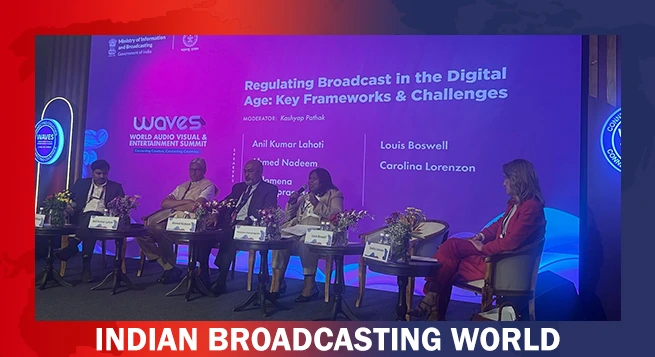 TRAI chief not in favour of separate rules for OTT, legacy b’casters
TRAI chief not in favour of separate rules for OTT, legacy b’casters  ‘KanKhajura’ start streaming on Sony LIV from May 30
‘KanKhajura’ start streaming on Sony LIV from May 30  Koyal.AI debuts at WAVES 2025, set to revolutionise music videos with GenAI
Koyal.AI debuts at WAVES 2025, set to revolutionise music videos with GenAI  Zee Cinema to premiere ‘Pushpa 2: The Rule’ on May 31
Zee Cinema to premiere ‘Pushpa 2: The Rule’ on May 31  ‘Create in India Challenge’ S1 honours global talent at WAVES
‘Create in India Challenge’ S1 honours global talent at WAVES  Amazon MX Player adds 20+ dubbed international titles
Amazon MX Player adds 20+ dubbed international titles 


